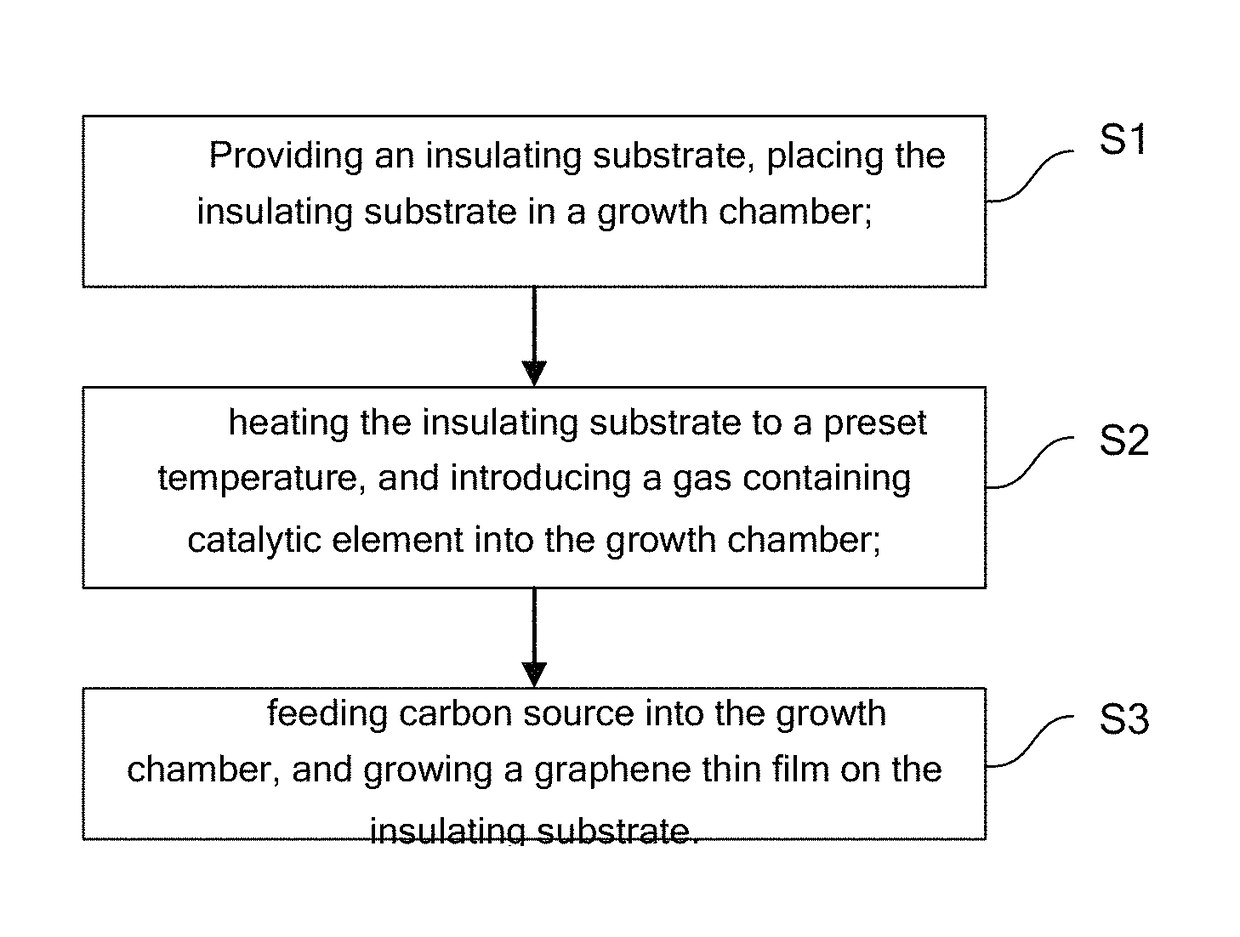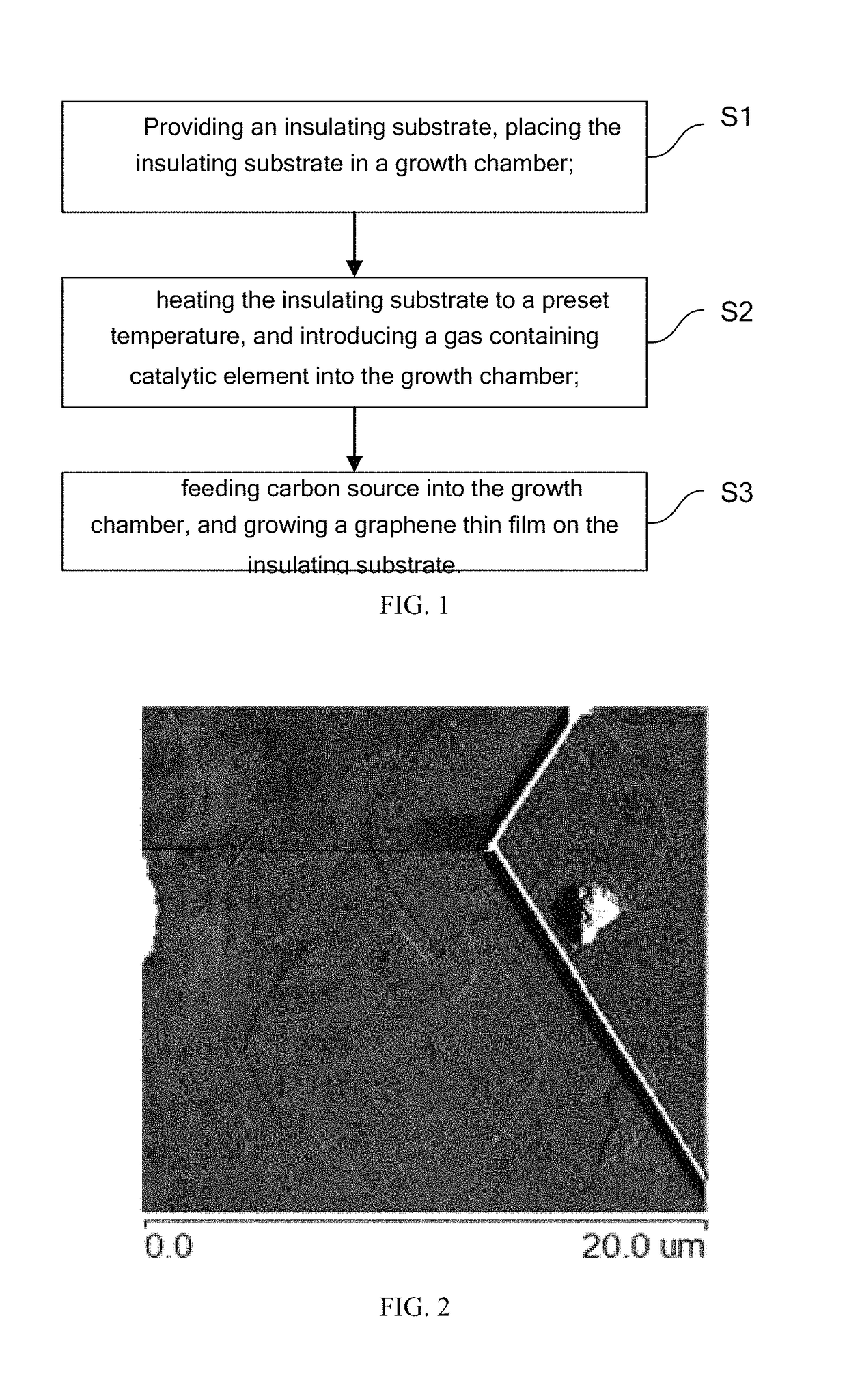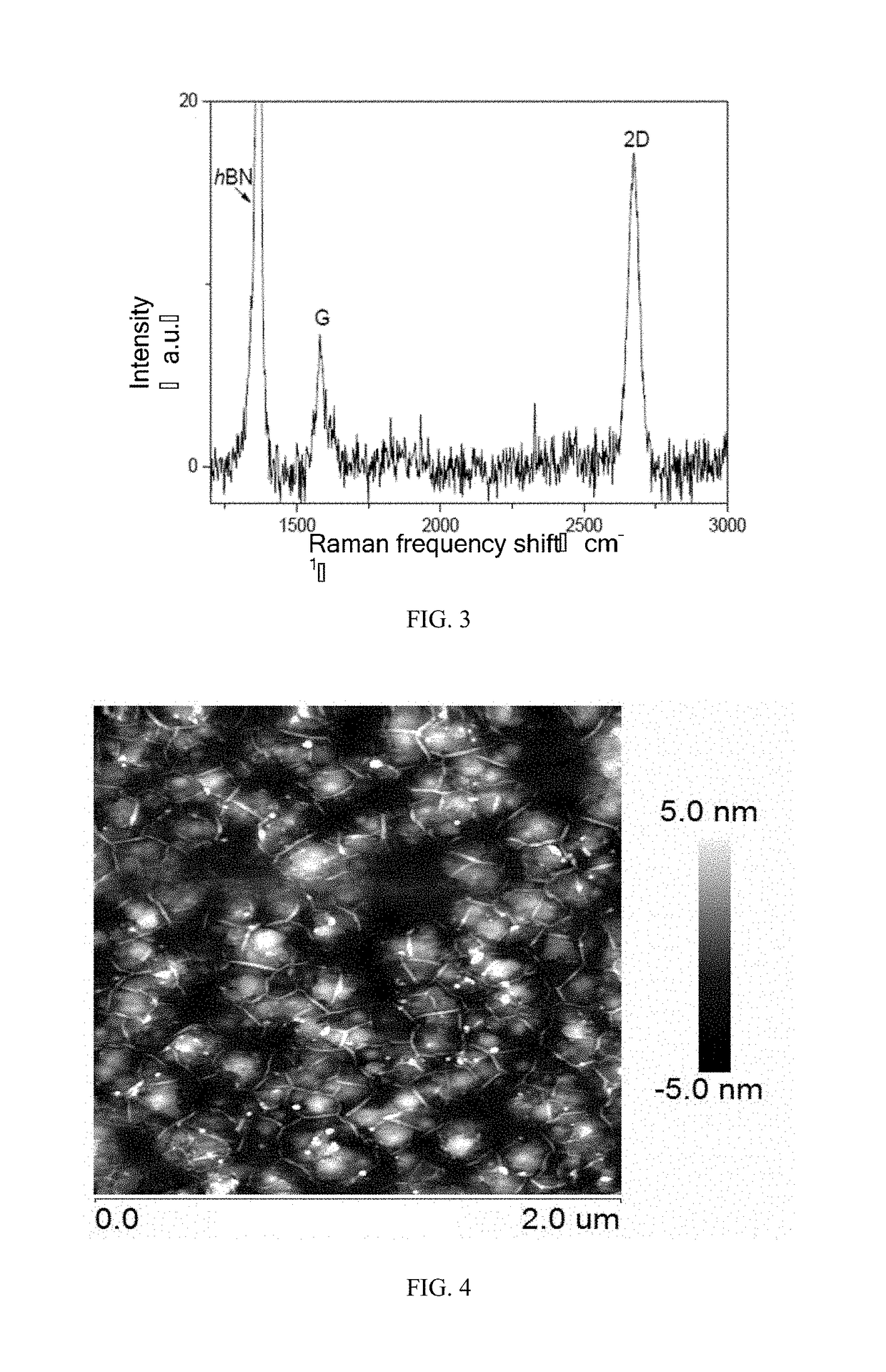Growth method of graphene
a growth method and graphene technology, applied in the direction of crystal growth process, polycrystalline material growth, chemically reactive gas, etc., can solve the problems of reducing the property of graphene, slow growth rate, destructive and high-cost process, etc., to achieve slow growth rate, high quality, and slow growth rate of graphene
- Summary
- Abstract
- Description
- Claims
- Application Information
AI Technical Summary
Benefits of technology
Problems solved by technology
Method used
Image
Examples
embodiment 1
[0038]
[0039]Firstly perform step S1: providing an insulating substrate, placing the insulating substrate in a growth chamber.
[0040]Specifically, the insulating substrate may be sapphire, silicon carbide, quartz, hexagonal boron nitride, cubic boron nitride, strontium titanate or glass, or the like. In the present invention, the insulating substrate is preferably hexagonal boron nitride (hBN), and the preparation method thereof is that: taking a hexagonal boron nitride single crystal as a raw material, mechanically stripping a silicon substrate with a silicon dioxide layer on an upper surface (silicon dioxide / silicon substrate) to obtain a hexagonal boron nitride layer with a fresh cleavage plane, so as to form a hexagonal boron nitride / silicon dioxide / silicon substrate. The hexagonal boron nitride thin film has a similar crystal structure with the graphene, and has better insulativity, thermal conductivity as well as chemical stability, with the result that when growing the graphene...
embodiment 2
[0059]
[0060]In the present embodiment, the graphene thin film is grown by the low pressure chemical vapor deposition method.
[0061]Firstly perform step S1: providing an insulating substrate, placing the insulating substrate in a growth chamber.
[0062]Specifically, a sapphire substrate is used as the insulating substrate. The sapphire substrate is firstly washed, and then is placed in a tube furnace. In the present embodiment, the manner ii) introducing catalytic element in the first embodiment is adopted, and thus in the present step, a compacted pellet of nano-iron powder is together placed in the tube furnace, and hydrogen-argon gas mixture is fed. Wherein, the flow velocity of the hydrogen-argon gas mixture is preferably 300 sccm, the volume ratio of the hydrogen and the argon is preferably 1:2.
[0063]Next, perform step S2: heating the insulating substrate to a preset temperature, and introducing a gas containing catalytic element into the growth chamber.
[0064]Specifically, the temp...
PUM
| Property | Measurement | Unit |
|---|---|---|
| crystalline domain size | aaaaa | aaaaa |
| temperature | aaaaa | aaaaa |
| temperature | aaaaa | aaaaa |
Abstract
Description
Claims
Application Information
 Login to View More
Login to View More - R&D
- Intellectual Property
- Life Sciences
- Materials
- Tech Scout
- Unparalleled Data Quality
- Higher Quality Content
- 60% Fewer Hallucinations
Browse by: Latest US Patents, China's latest patents, Technical Efficacy Thesaurus, Application Domain, Technology Topic, Popular Technical Reports.
© 2025 PatSnap. All rights reserved.Legal|Privacy policy|Modern Slavery Act Transparency Statement|Sitemap|About US| Contact US: help@patsnap.com



